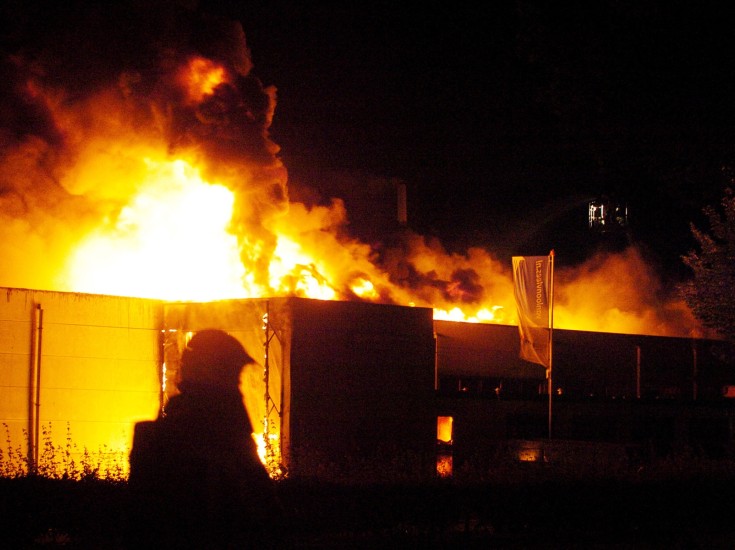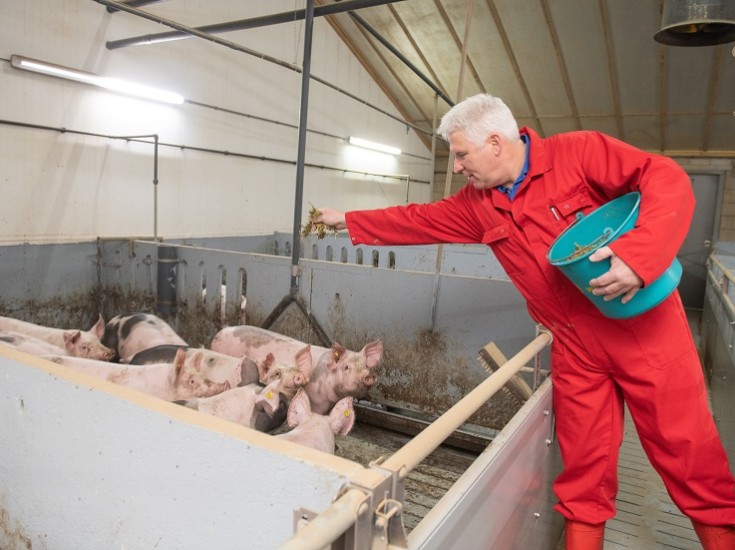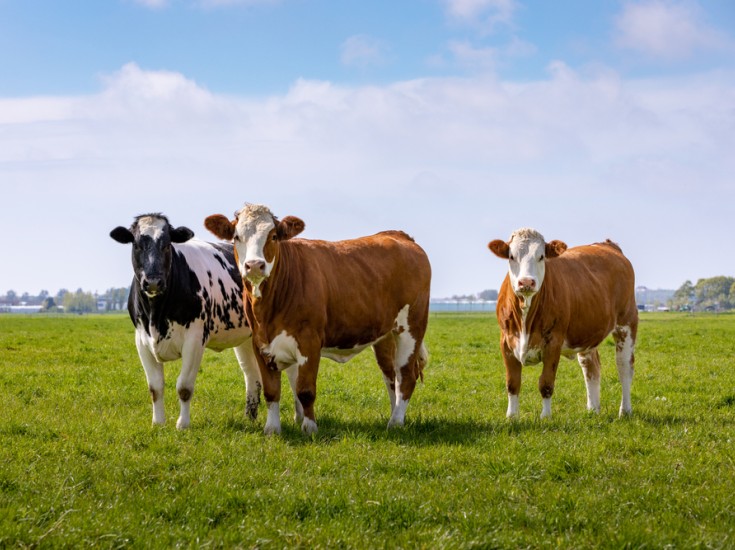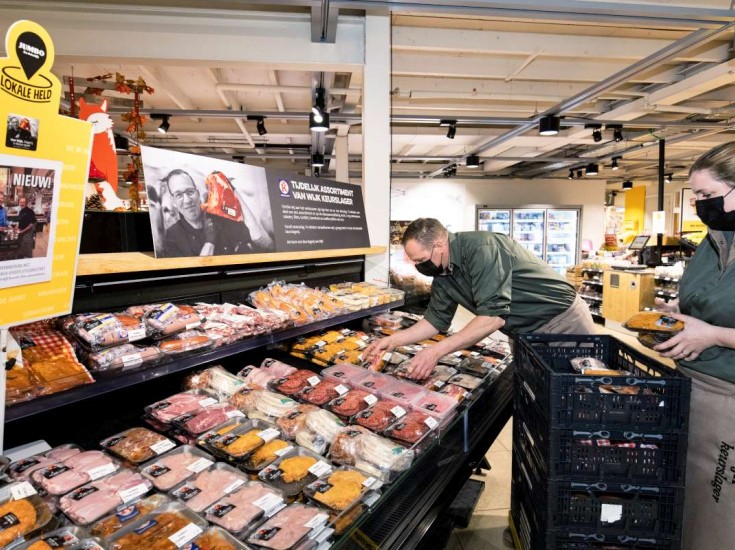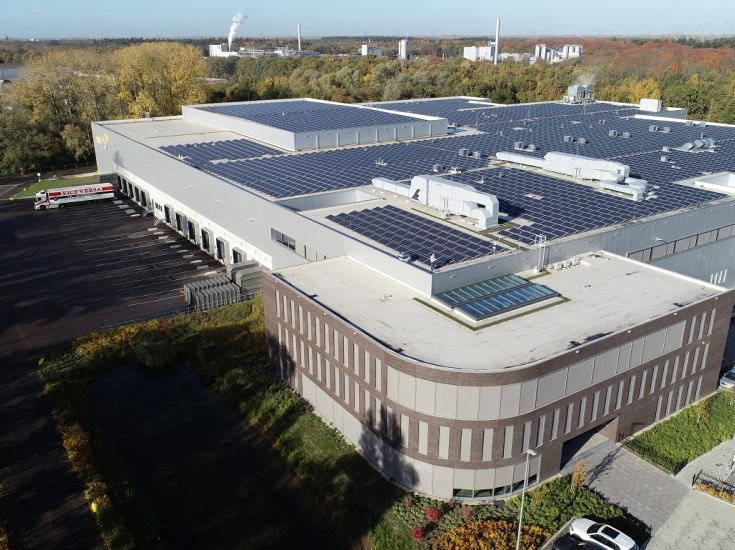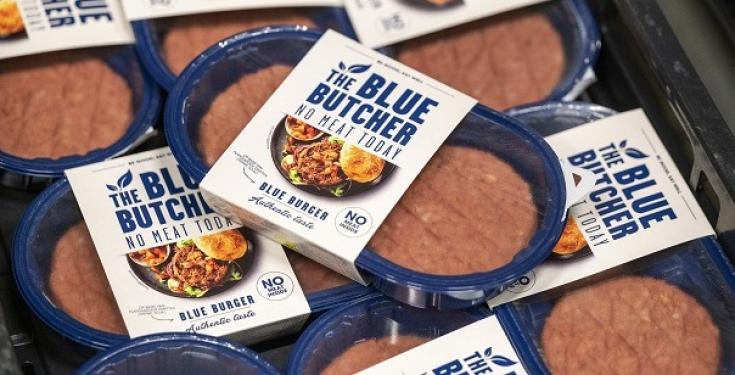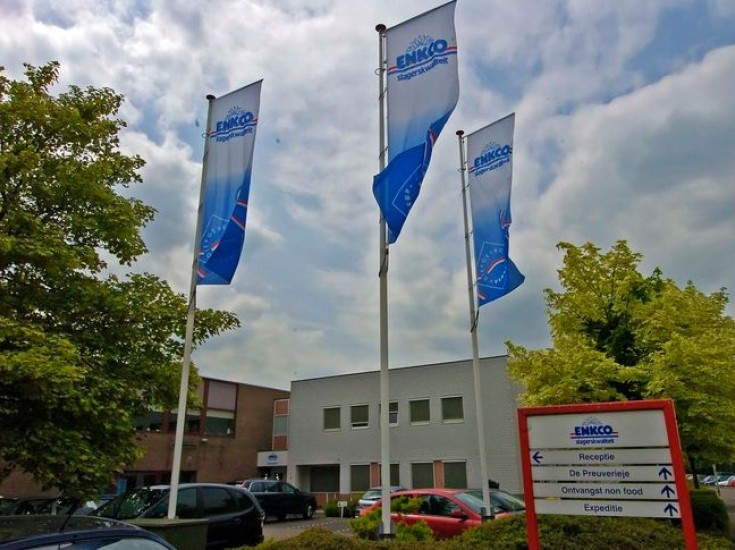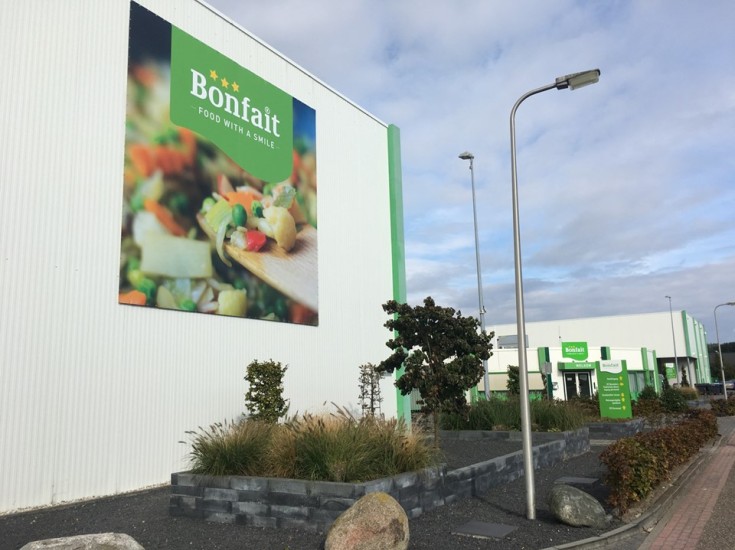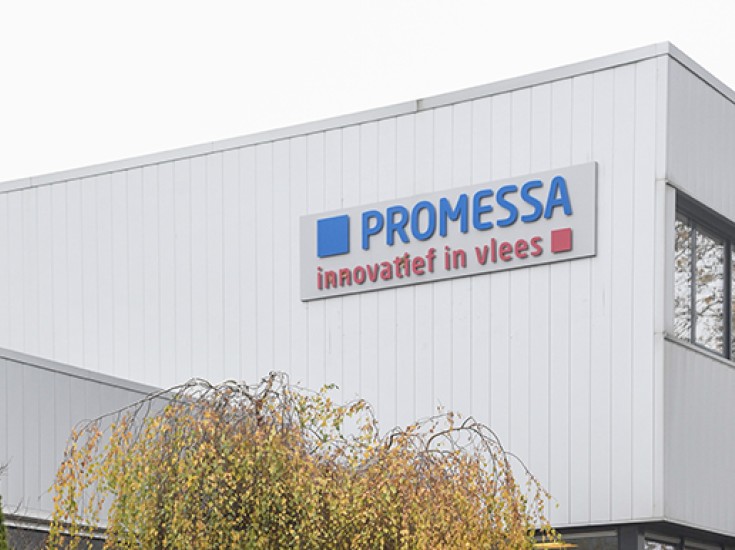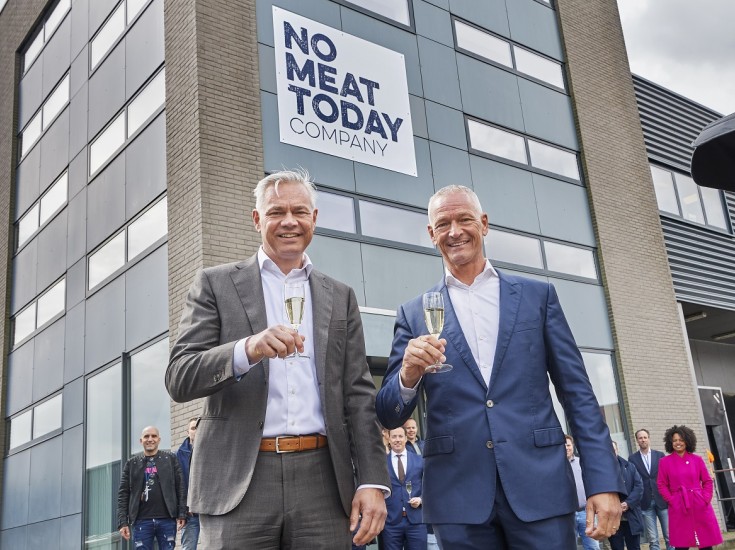In 50 years we have grown from a small meat supplier serving local restaurants into the most sustainable producer of meat products, meat substitutes and ready meals in Europe. The second generation is currently at the helm, the brothers Erik and Roland van Loon. Read more about our history and the achievements we have accomplished.
Van Loon through the years
And so Van Loon's first achievement came in name of “our dad” Jos. And with him of course also “our mom” Mieke, because she stood squarely behind her husband to set up their own company. On November 1, 1971, Jos founded his butchery in Eindhoven. In doing so, he laid the foundation for the current Van Loon Group. The location of the very beginning – the Genneper Watermill in Eindhoven – looks like a postcard.
In no time the Genneper Watermolen turned out to be too small. Time for the next step. In 1975 Jan Louwers opened the doors of his HorecaGroothandelsCentrum (HGC) at 5 Hurksestraat in Eindhoven. Jos moved along and got a top spot, right at the entrance. Customers ordered their meat, continued shopping while Jos freshly prepared the ordered meat.
In 1986 Jos heard the first rumors that Jan Louwers wanted to sell his company to Sligro. Jos was not interested in that. He went looking for a location to continue independently. In Eersel he found a suitable place for the new construction of his company: affordable and accessible.
In 1993, a long-cherished wish of Jos came true: all his children, including daughter Marjan, worked in the company.
In 1995, 29,000 Boy Scouts from all over the world gathered at the World Jamboree in Dronten. And they all had an appetite for sausages, spare ribs, hamburgers, chicken breasts and so on. The Dutch caterer ECS approached Van Loon with the question whether cooked meat could be supplied for these 29,000 young men and women. It is well known that Van Loon does not say 'no'. Even if they simply don't have the equipment to cook all that meat. Then you're going to look for someone who does. Erik found it at De Man in Vorselaar. They had a huge oven that they rarely used. An opportunity! Van Loon delivered the raw meat, De Man prepared it. It was a great success and it laid the foundation for a new partnership.
At the age of 59, 29 years after the founding of his company, Jos formally left his company. The farewell had already started in 1995. In 1996 Roland and Erik bought out their sister Marjan and after that the brothers also took over the shares of Jos bit by bit. Jos had taken the company from a small catering butcher to a serious meat supplier for the food service and, increasingly, for the retail as well.
A delicious portion of minced meat with a real meat taste”, wrote the Algemeen Dagblad (Dutch nationwide newspapaer) in 2007. The Oldenlander of meat producer “De Zaligheden” participated in the National Meat Test. The minced meat was the glorious winner with a rating of 9.9. The 10 is only for the master… “Coarsely twisted mincemeat. With a good and full meat smell and taste. In short, a top product. Everything is right and Lidl is the surprising test winner. Proof that good doesn't have to be expensive.” Lidl and Van Loon received that compliment.
Tonight at 10.11 pm a very large fire was reported at a meat processing company on Wegastraat. That is what the Tilburg police wrote on 15 June 2007. That meat processing company was Van Loon. That night, after a relative woke him up, Erik drove as fast as he could from his house in Riethoven to the factory to see if there was anything left to save. The fire could already be seen from afar and could no longer be tamed. After the "fire master" signal could be given at 2 a.m., the fire brigade concluded that the building could be considered lost. An all time low in Van Loon's history. A perpetrator has never been caught.
Already in 2011, Van Loon's pork was rewarded the “Better Life (Beter Leven) 1 star quality mark”. This meant that pigs led a life that met the minimum requirements for living space, daylight and play material for the animals.
One star is good, two stars is better of course. In September 2014, a new range of beef was introduced that fell into the two-star category of the Better Life (Beter Leven) quality mark. The meat came entirely from our own chain and met the requirements for housing for cattle, such as stables with a minimum of 6.6 m2 per cow,, soft berths with straw and six months of grazing per year plus requirements for the used livestock feed. Moreover, a calf lives for at least five months with its mother.
In 2014, Van Loon started looking for the next acquisition. Erik's eye had fallen on Brandenburg Culinair, a family business from the Dutch town of Oudewater. Once started as a traditional butcher, Brandenburg had grown in about 35 years into a specialist butcher that supplies both food service companies and supermarkets. Brandenburg Culinary is good at producing hams, pork tenderloins, roulades, which can also be adapted to the taste of customers.
An opportunity. The takeover of the Jumbo Group's Central Butchery was one. Jumbo will divest its central butchery in Beilen in 2016 to focus more on its core activities. Meat Friends, part of Van Loon Group, was interested. Meat Friends and Jumbo have also been working together for years. In Beilen, more than 200 employees process and pack beef and pork products every day for Jumbo's many supermarkets. They continued to do this after the takeover. This made Van Loon's position in the retail market even stronger.
The year 2016 was entirely dominated by the new construction in Son en Breugel. Van Loon invested 56 million euros in a brand new building on the Ekkersrijt industrial estate, near Omroep Brabant. 26,000 m2 of usable surface, of which 85% for production and 15% for offices. Nearly 7,000 m2 of solar panels make a major contribution to the energy consumption of the factory. The building does not use fossil fuels, because everything is electric. As Roland says: “Everyone talks about sustainability, Van Loon does it.” On September 10, 2017, the building was officially opened by Mayor Hans Gaillard of the municipality of Son en Breugel.
In addition to eating out, another trend appeared: eating less meat. At least, between 2010 and 2019, meat consumption in the retail sector declined steadily. In 2019, meat consumption increased slightly. In any case, the fact is that, as a counter-movement, meat substitutes became more and more popular. As a producer of meat products you have to do something about that. Van Loon did not lag behind and introduced “The Blue Butcher”, a vegetarian product line with the taste of real meat. The meat substitute was introduced at the Anuga in Cologne, a trade fair for food producers. At the fair you could try Blue burgers, blue minced meat, blue sausages, blue balls and two kinds of blue schnitzel.
In 2019, Van Loon Group took over Enkco. Enkco is a specialist in chilled and frozen products. In addition, Enkco makes hybrid products in which meat and vegetable proteins are mixed. The company has built up a strong position in the foodservice market since 1960. Think of customers such as caterers, healthcare institutions and gas stations. Fits perfectly in Van Loon Group's strategy, Erik judged. Enkco agreed to the acquisition. The production was moved from Holten to Best. The Holten factory was closed after 1.5 years.
In 2021 Van Loon entered the market for ready meals and meal components with the acquisition of the company Bonfait. Bonfait was owned by the German Apetito, which wanted to focus more on frozen meals. Strategically, Bonfait fits perfectly into the image of “good source, great food”. Van Loon is increasingly changing from a meat company to a food company. Bonfait will be a separate division for meals and represents the next step to continue to grow and develop sustainably.
In the anniversary year 2021, Van Loon will make its as yet last acquisition: Promessa. This 'Deventer' company with 250 employees has been the central butchery of Coop Supermarkets since 2009. Promessa supplies 1,500 supermarkets of, among others, Coop, Spar, Plus, Dekamarkt and Deen. Promessa processes pork and beef products and is therefore a further reinforcement of Van Loon Group in the retail market.
Van Loon Group is introducing a new company, focused exclusively on the production of meat substitutes: No Meat Today Company. A new factory has been opened in Almere, specially equipped for the development and production of a wide range of non-meat products. In addition to producing the innovative FiberFort™, the existing brand ‘The Blue Butcher’ will be transferred to No Meat Today Company.
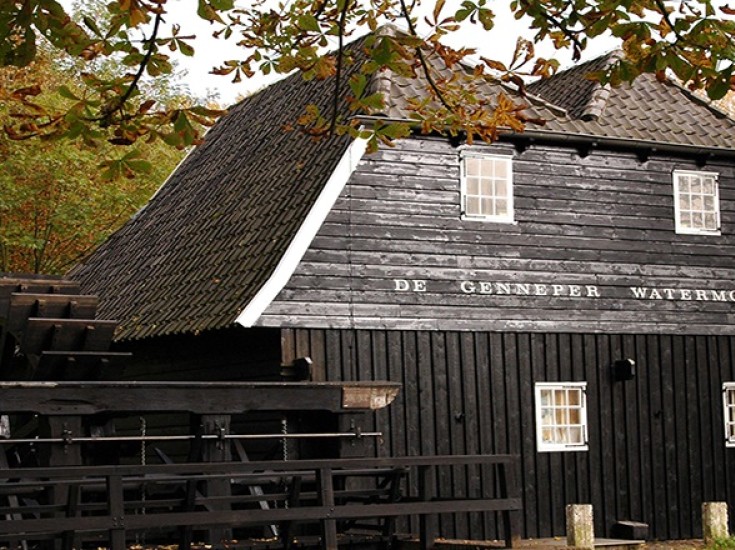
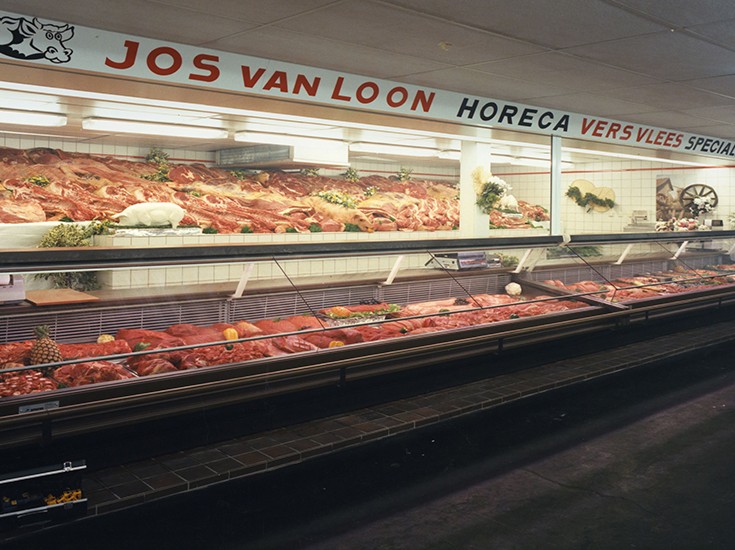
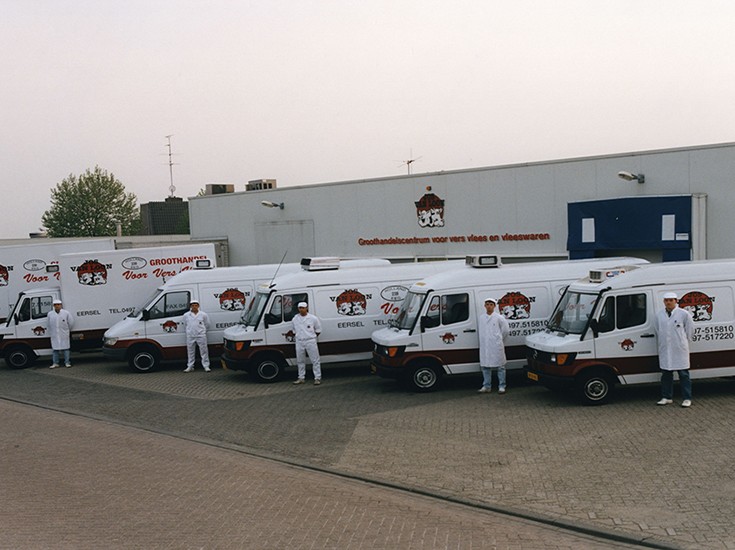
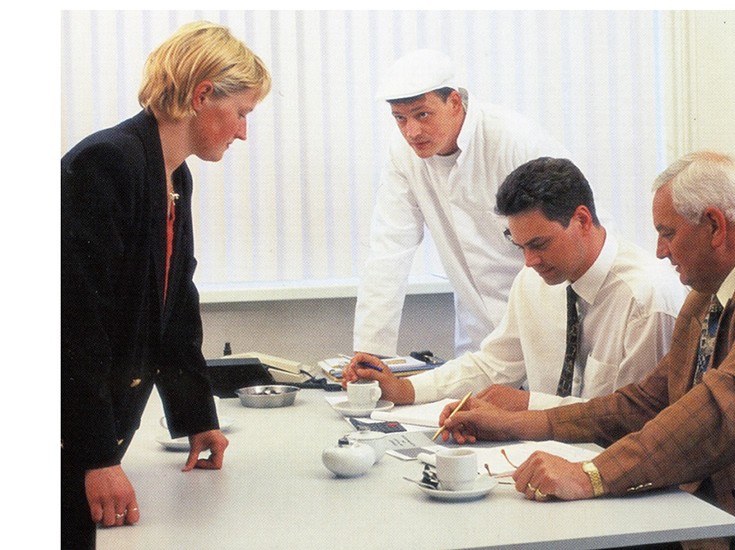
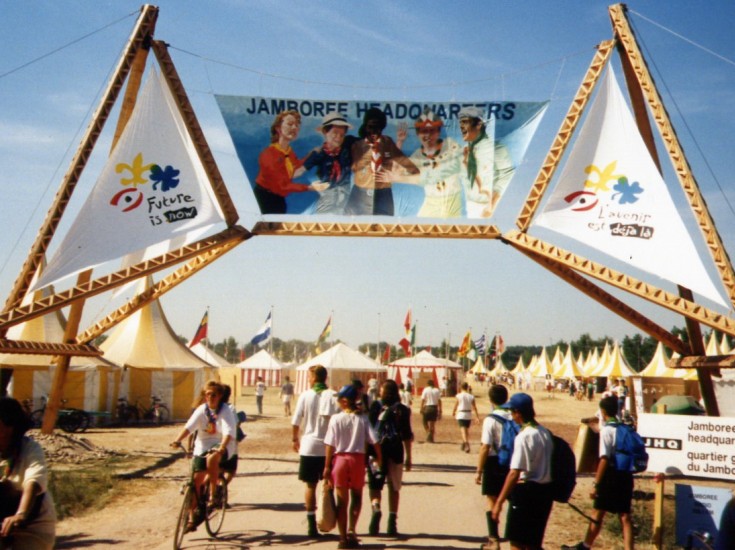
.jpg-history-small.jpg)

